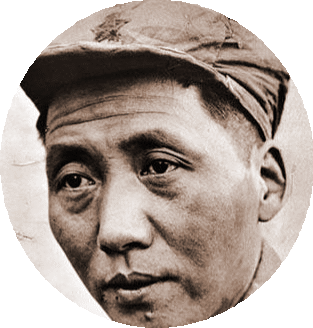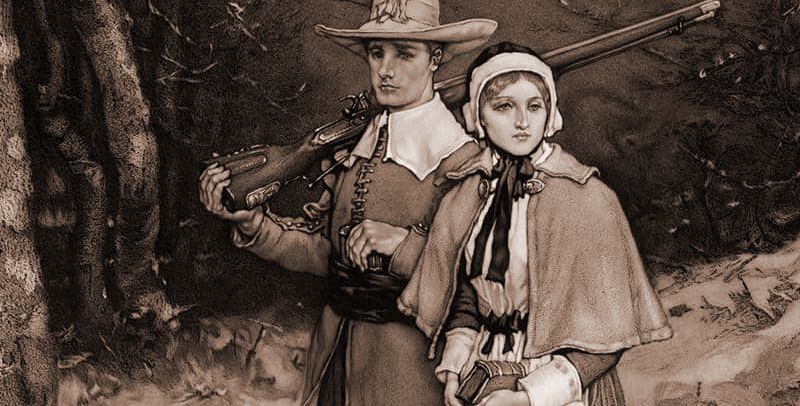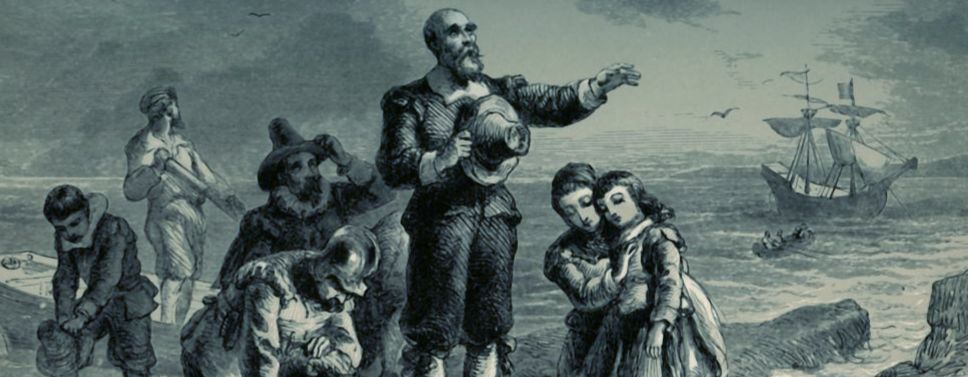by Radley Peecher for FNO February 2011
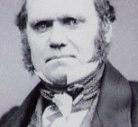
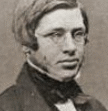
|
How the Left Began... Nearing the end of the decade of the 1780’s—some years after the signing of America’s Declaration of Independence—there were numbers of men and women in France who the successful American Revolution inspired—some in a good way, others, not so much. And by that time, France’s monarchy—encrusted with corruption and facing insurmountable debt—teetered on the precipice of destruction. Although, for a brief period, it seemed as if total oblivion might be avoided when one of the most famous Frenchmen in the world, the idealistic Marquis De Lafayette—two of Lafayette’s causes were the Abolition of Slavery and protection of Religious Freedom—entered the scene and attempted to use his immense fortune to temper abuses. And as a leader within the first National Assembly, Lafayette—a stanch Republican—managed to lead his countrymen into enacting proposals establishing the beginnings of a Republic—the motto of the Assembly was … Liberty, Fraternity, Equality. However, the French Radicals would not accept a peaceful solution; the Radicals didn’t want reconciliation; they wanted power, and, in July of 1789, the Country of France exploded. After that, the monarchy came tumbling down, and Revolution was the result. Soon enough, Lafayette’s work was erased by the Progressive Radicals, whose slogan seemed to be … Terror, Terror, Terror. And, after pushing the idealistic Marquis out of the picture, the Radicals grasped power like a Burmese Python coiling around a hare, dismantling the National Assembly and replacing it with a National Directory. At which point, the Directory’s Committee on Public Safety soaked the Revolution in blood and set in motion … the Reign of Terror. And throughout their Reign of Terror, the Progressive Radicals became known for the location of their seats in the newly formed National Directory on the left—e.g., they occupied seats on the left side of the aisle—after that, Progressive Radicals were given the label, throughout history up to the present, as … Leftists. And from this point forward in our narrative, they will be referred to as, Leftists. Radical Leftists grabbed the reins of the Revolution and whipped the mob toward terror, the result being—the nation ran red with blood. The world’s first political “Progressives” stood cheering at the foot of the guillotine while the heads fell and rivers of blood gushed forth from severed necks. All, in the name of … Progress. And So the Left was born. During the blood-soaked French Revolution, the Radical Leftists realized that one of their greatest political foes was Christianity. After all … when you’re agitating for vengeance and blood on a vast scale, it can be a real drag if there are groups of people around who preach repentance and love? Their solution was to turn GOD into an outlaw. So, they sent priests to the guillotine, confiscated the Church’s property, and stomped out religious belief wherever and however they could. In the end, however … they failed. Their bloody Revolution, quite predictably, morphed into a dictatorship; priests were re-ordained, and churches were rebuilt. In the end, the dictator, as dictators are wont to do, sometimes even used the official government-approved Church to further his own ends. However, at the same time, apart from the dictatorship, all over the country—in hidden places—Faith was reborn. So, for the next hundred years, Radicals fumed but were impotent against the forces of REAL faith. How can you agitate for class warfare when people trust GOD … when people want to love their neighbor as themselves? As a result, the Leftist Radicals came to realize they had to deal with GOD even as they continued to agitate for another bloody class struggle. In the year 2021 … here in America, the Pelosi’s, Schumer’s, Biden’s and their ilk are the distant progeny of those men and women who occupied the seats to the LEFT during the French Revolutionary Assembly during the late eighteenth century. In America, the Class Struggle may have morphed into the battle against so-called, White Christian Privilege, but little else has changed. The tree of “Progress” has its corrupt roots in the French Radicals, who gave birth to the Radicals of nineteenth-century Europe, who became the“Fabian Socialists” of the late-nineteenth-century, who filled the ranks of the Com-Intern (Stalin’s Communist International) of the second half of the twentieth century, who morphed into the Neo-Marxist “Progressive Movement” of the early twenty-first century.
AND NOW FOR THE REST OF THE STORY … In 1859 Charles Darwin published: On the Origin of Species by Means of Natural Selection, or the Preservation of Favoured Races in the Struggle for Life. Eureka! They had found it! Origin of the Species provided the key … the key Radicals had been searching for since their dismal failure during the French Revolution. European Radicals (the political and spiritual progeny of those who dominated the seats to the LEFT within the Revolution’s National Assembly) had searched fervently for an answer, and suddenly Darwin gave it to them. After that, Revisionist Historians carefully molded a Charles Darwin for the ages, giving him an image of respectability and creating an icon of science. Charles Darwin was placed upon a golden pedestal because the Radical Progressives wanted Origin of the Species to occupy the same untouchable heights. But first, let’s learn a little about the golden boy: Charles Darwin was seven years old when his beloved mother died suddenly; after that, three adult sisters raised little Charles from the age of eight. Hmm … a young boy of tender sensibilities raised amidst three doting older women? His father, a very traditional man, was domineering and imperious; the elder Darwin was a Physician. So, at the age of ten, Charles was unceremoniously sent off to boarding school with his older brother, whereupon the bashful and timid boy went home at every opportunity to be deliciously pampered by his sisters. Exasperated, the elder Darwin sent the lad off to the University of Edinburgh to prepare him to take the exams that would qualify the lad for medical school. But, young Charles failed miserably, so his enraged father packed him off to study for the Ministry at Christ’s College. Was Darwin a Christian? No, he had become a “free thinker,” but he kept his unorthodox beliefs hidden from his father. So, why did he agree to study for the Ministry? Well, that was never his choice, he had wanted to become a doctor to please his overbearing father, but unfortunately, Darwin learned at Edinburgh that he could not stand the sight of blood. So, why would he agree to study for the Ministry? Remember, folks, this is the Victorian Era, and Darwin was from a wealthy ruling class family. It was the practice of the time, if the son of a prestigious family failed in his studies, was not bright enough, or disciplined enough, or possessed bad character flaws which would preclude him from becoming a scholar, or a physician, or something that required discipline and character, well, that young man would be packed off to study for the Ministry. Note: In this era, the Church of England and the Government of England were the same thing. So, it must be noted here that this was not a Ministry where the gospel of Jesus Christ was revered. In Charles Darwin’s day, the Church of England was an arm of the aristocrats … of the government. In Charles Darwin’s era, Queen Victoria was Head of the Church of England, and many top positions in the Church were pretty much reserved for corrupt young aristocrats. This is not to say there had never been devout Christians within Great Britain; for example, the great abolitionist William Wilberforce. William Wilberforce was born into the same British aristocracy as Charles Darwin, but all similarities end there … Wilberforce, at the age of twenty-five, converted to Evangelical Christianity, and became a total man of faith … a man of great FAITH, as were many British Commoners who revered the name of Jesus. In 1807, two years before Charles Darwin was born, Wilberforce—after decades of trying—managed to offer up a bill calling for the abolishment of the slave trade in the British West Indies—after which, the House of Commons passed his bill and thereby brought to an end … the British slave trade. But, aside from the true believers, there were many effete near-do-wells from out of the ruling class who became persons of importance within the official Church of England by the influence of their family name. At Christ’s College, Cambridge, young Darwin immediately came under the spell of John S. Henslow. Henslow was married, and Progressive Historians have always been anxious to paint him a good family man; however, on the contrary, this is not quite true. Like many other ruling class members of the Victorian Era with similar proclivities, Reverend Henslow used his family as a convenient cover, which allowed him to enjoy the company of young men regularly. So along comes young Charles … While at Cambridge, Charles Darwin actually did study theology; however, his real interest was studying nature. And he found a good friend and mentor in Henslow, a professor of botany, with whom young Charles learned he shared a mutual admiration for the “collection of beetles.” And soon … Darwin’s classmates began to refer to the smitten young man as “Henslow’s Shadow.” It seems Darwin was so utterly infatuated with the man, fifteen years older than he, that he doggedly and slavishly followed Henslow wherever he went. So, what kind of student was Darwin? Well, even with distractions swirling about him, Darwin passed his finals in 1831, barely scraping by in mathematics, however. At first, the Reverend Henslow seems to have enjoyed Darwin’s devotion but eventually tired of his young protégé. His solution was to recommend Charles as an “unpaid companion” to the Captain of HMS Beagle, which was about to leave on a two-year voyage to the Pacific. It would seem that the breakup was rather cold on Henslow’s part, as evidenced by the means he chose to break the news. Upon returning to his rooms from a frolic in the woods “collecting specimens” with several other young dandies, Darwin found a letter from Henslow unceremoniously announcing to the younger man that the good Reverend had obtained a position for him with the Captain of HMS Beagle, which was about to sail for the Pacific. The Captain of the Beagle just happened to be a highborn aristocrat from a very wealthy family named Robert Fitzroy, and Fitzroy (at one time) had been another “special friend” of Reverend Henslow. At this point, we should learn just a little about the background of the good Captain. The childhood of Robert Fitzroy had been troubled. Raised at Wakefield, the Palladian Mansion that was the family estate, the boy had played with his lead soldiers in the great hall while dozens of gold-framed ancestors stared down at him from the walls. His father was an important British General, and Robert was the fourth grandson of Charles II of England. Young Fitzroy—anxious to live up to his ancestor’s accomplishments—was single-minded in his desire to succeed and was sent off to the Royal Navy to learn about life at the age of twelve. Decades later—the hero of WWII—Winston Churchill, famously described the traditions of the Royal British Navy in Fitzroy’s day as “Rum, Sodomy and the Lash.” And, by the age of seventeen, young Robert had become familiar with at least two of these traditions. As a midshipman, Robert Fitzroy was allowed to take leave when his ship was in port, and on one such occasion, he decided to visit his uncle, Viscount Castlereagh, at his estate. While there, he arose one morning, went down the hall, and discovered the door to his uncle’s room ajar. As he peered in, the teenager discovered his uncle dead … the old man had cut his own throat with a razor over mounting gambling debts. The incident seems to have driven Fitzroy deep into depression. A depression Fitzroy would struggle with throughout the rest of his life, and by the time he reached maturity, the young aristocrat had developed obsessive thoughts about suicide … vivid dreams in which he would cut his own throat and stand there as rivers of blood gushed from his neck. As a result, when the young Popinjay got orders from the British Admiralty to take command of HMS Beagle, fit her out, and embark on a long survey expedition to South America, he went into his room, pulled the blinds and clutching a razor in his hand hunkered down in a corner terrified at the thought of such a voyage. The previous Captain of the Beagle had committed suicide just like his uncle, and alone in his room, the young man was panic-stricken. He seems to have pulled himself together, however, and later, he made a momentous decision. Fitzroy decided to take a “paid companion” on the voyage with him. Captain Fitzroy then confided in one of his “special friends,” a man named Henslow ... and Reverend Henslow recommended the needy Darwin. After meeting with Captain Fitzroy, young Charles became quite enthusiastic about the prospects of this randy adventure at sea. He had been quite taken with the handsome Captain and with Fitzroy’s imperious, priggish manner. So it was settled, Darwin made himself ready to sail on the Beagle as an “unpaid dining companion” to Captain FitzRoy. And Darwin’s relieved father eagerly agreed to support his twenty-two-year-old son for the duration of the voyage, which ended up lasting five years and which had the effect of keeping the effeminate young man out of sight from family, friends, and acquaintances back in Great Britain. Darwin learned later he was almost turned down by FitzRoy … on account of the shape of my nose! He wrote in a letter the following … Afterward, on becoming very intimate with Fitz-Roy, I heard that I had run a very narrow risk of being rejected on account of the shape of my nose! He was an ardent disciple of Lavater (an advocate of Physiognomy) and was convinced that he could judge a man’s character by the outline of his features, and he doubted whether any one with my nose could possess sufficient energy and determination for the voyage. But I think he was afterward well-satisfied that my nose had spoken falsely.” (Source: Letters of Charles Darwin) When he left on HMS Beagle, Darwin had no academic accomplishments; his resume included no training in science, and at best, he was an amateur Naturalist, which was a common homosexual cover for members of the British privileged class. Remember, this was the Victorian Era, the old hierarchical order was still firmly in control, and prudishness and sexual repression ruled the day. Young British Aristocrats would go out into the King’s Woodlands, “collecting specimens,” huddle in their tents at night and drink champagne while engaging in their favorite forms of debauchery. Actually, however, Darwin spent most of his time with HMS Beagle on land; and during the five years he was with the ship, he discovered he had previously undiscovered writing talent and kept detailed journals regarding his travels. Like many Victorians, Darwin became a compulsive writer, although his handwriting was atrocious, revealing his lack of success in higher education. Even so, Darwin’s poorly written legacy includes more than fifteen thousand self-serving letters and a great number of notebooks in which he described exciting adventures in the exotic places he visited. He also used what little talent he had as a “Naturalist” to collect bizarre specimens from the various places the Beagle had taken him. Meanwhile … Although Darwin was away for years, his fame back in England had exploded; Henslow and his Radical colleagues had fueled interest in the specimens Darwin sent back and managed to stoke the flames of his budding celebrity as expertly as P.T. Barnum had done with General Tom Thumb. By the time Darwin returned to England in 1836, he was already a superstar among Progressives and soon gained a smattering of support from fringe scientists eager to help him dissect and analyze his samples; however, Darwin’s farfetched theories met with strong opposition from more sober-minded men of science. |
Once back in England, young Charles was amazed to discover the extent of his celebrity; in this era in England’s history, seafarers, who had traveled to faraway exotic places, gained something similar to “rock star” status. The public thrilled to read of their exploits in strange distant lands. Darwin, who had kept so many journals and records of his travels, became a celebrity of the first magnitude, and he was determined to milk it for all it was worth. Radical thinkers and Progressives with an agenda flocked around him and gave depth to his far-fetched untutored theories. Victorian England’s fascination with pseudo-sciences such as Phrenology, Mesmerism, Spiritualism, and Physiognomy was a cultural phenomenon that arose during this time of great social upheaval brought on by the onslaught of the Industrial Revolution. Whether it was head reading, hypnotic trances, or hyperactive spirits, English Victorians were receptive to almost any zany idea that provided them with an explanation for their own dismal lives and the chaos that swirled about them. So, what about Robert Fitzroy during this time? He wrote in a letter the following … Afterward, on becoming very intimate with Fitz-Roy, I heard that I had run a very narrow risk of being rejected on account of the shape of my nose! He was an ardent disciple of Lavater (an advocate of Physiognomy) and was convinced that he could judge a man’s character by the outline of his features, and he doubted whether any one with my nose could possess sufficient energy and determination for the voyage. But I think he was afterward well-satisfied that my nose had spoken falsely.” (Source: Letters of Charles Darwin) When he left on HMS Beagle, Darwin had no academic accomplishments; his resume included no training in science, and at best, he was an amateur Naturalist, which was a common homosexual cover for members of the British privileged class. Remember, this was the Victorian Era, the old hierarchical order was still firmly in control, and prudishness and sexual repression ruled the day. Young British Aristocrats would go out into the King’s Woodlands, “collecting specimens,” huddle in their tents at night and drink champagne while engaging in their favorite forms of debauchery. Actually, however, Darwin spent most of his time with HMS Beagle on land; and during the five years he was with the ship, he discovered he had previously undiscovered writing talent and kept detailed journals regarding his travels. Like many Victorians, Darwin became a compulsive writer, although his handwriting was atrocious, revealing his lack of success in higher education. Even so, Darwin’s poorly written legacy includes more than fifteen thousand self-serving letters and a great number of notebooks in which he described exciting adventures in the exotic places he visited. He also used what little talent he had as a “Naturalist” to collect bizarre specimens from the various places the Beagle had taken him. Meanwhile … Although Darwin was away for years, his fame back in England had exploded; Henslow and his Radical colleagues had fueled interest in the specimens Darwin sent back and managed to stoke the flames of his budding celebrity as expertly as P.T. Barnum had done with General Tom Thumb. By the time Darwin returned to England in 1836, he was already a superstar among Progressives and soon gained a smattering of support from fringe scientists eager to help him dissect and analyze his samples; however, Darwin’s farfetched theories met with strong opposition from more sober-minded men of science. Once back in England, young Charles was amazed to discover the extent of his celebrity; in this era in England’s history, seafarers, who had traveled to faraway exotic places, gained something similar to “rock star” status. The public thrilled to read of their exploits in strange distant lands. Darwin, who had kept so many journals and records of his travels, became a celebrity of the first magnitude, and he was determined to milk it for all it was worth. Radical thinkers and Progressives with an agenda flocked around him and gave depth to his far-fetched untutored theories. Victorian England’s fascination with pseudo-sciences such as Phrenology, Mesmerism, Spiritualism, and Physiognomy was a cultural phenomenon that arose during this time of great social upheaval brought on by the onslaught of the Industrial Revolution. Whether it was head reading, hypnotic trances, or hyperactive spirits, English Victorians were receptive to almost any zany idea that provided them with an explanation for their own dismal lives and the chaos that swirled about them. So, what about Robert Fitzroy during this time? After meeting with Captain Fitzroy, young Charles became quite enthusiastic about the prospects of this randy adventure at sea. He had been quite taken with the handsome Captain and with Fitzroy’s imperious, priggish manner. So it was settled, Darwin made himself ready to sail on the Beagle as an “unpaid dining companion” to Captain FitzRoy. And Darwin’s relieved father eagerly agreed to support his twenty-two-year-old son for the duration of the voyage, which ended up lasting five years and which had the effect of keeping the effeminate young man out of sight from family, friends, and acquaintances back in Great Britain. Darwin learned later he was almost turned down by FitzRoy … on account of the shape of my nose! He wrote in a letter the following … Afterward, on becoming very intimate with Fitz-Roy, I heard that I had run a very narrow risk of being rejected on account of the shape of my nose! He was an ardent disciple of Lavater (an advocate of Physiognomy) and was convinced that he could judge a man’s character by the outline of his features, and he doubted whether any one with my nose could possess sufficient energy and determination for the voyage. But I think he was afterward well-satisfied that my nose had spoken falsely.” (Source: Letters of Charles Darwin) When he left on HMS Beagle, Darwin had no academic accomplishments; his resume included no training in science, and at best, he was an amateur Naturalist, which was a common homosexual cover for members of the British privileged class. Remember, this was the Victorian Era, the old hierarchical order was still firmly in control, and prudishness and sexual repression ruled the day. Young British Aristocrats would go out into the King’s Woodlands, “collecting specimens,” huddle in their tents at night and drink champagne while engaging in their favorite forms of debauchery. Actually, however, Darwin spent most of his time with HMS Beagle on land; and during the five years he was with the ship, he discovered he had previously undiscovered writing talent and kept detailed journals regarding his travels. Like many Victorians, Darwin became a compulsive writer, although his handwriting was atrocious, revealing his lack of success in higher education. Even so, Darwin’s poorly written legacy includes more than fifteen thousand self-serving letters and a great number of notebooks in which he described exciting adventures in the exotic places he visited. He also used what little talent he had as a “Naturalist” to collect bizarre specimens from the various places the Beagle had taken him. Meanwhile … Although Darwin was away for years, his fame back in England had exploded; Henslow and his Radical colleagues had fueled interest in the specimens Darwin sent back and managed to stoke the flames of his budding celebrity as expertly as P.T. Barnum had done with General Tom Thumb. By the time Darwin returned to England in 1836, he was already a superstar among Progressives and soon gained a smattering of support from fringe scientists eager to help him dissect and analyze his samples; however, Darwin’s farfetched theories met with strong opposition from more sober-minded men of science. Once back in England, young Charles was amazed to discover the extent of his celebrity; in this era in England’s history, seafarers, who had traveled to faraway exotic places, gained something similar to “rock star” status. The public thrilled to read of their exploits in strange distant lands. Darwin, who had kept so many journals and records of his travels, became a celebrity of the first magnitude, and he was determined to milk it for all it was worth. Radical thinkers and Progressives with an agenda flocked around him and gave depth to his far-fetched untutored theories. Victorian England’s fascination with pseudo-sciences such as Phrenology, Mesmerism, Spiritualism, and Physiognomy was a cultural phenomenon that arose during this time of great social upheaval brought on by the onslaught of the Industrial Revolution. Whether it was head reading, hypnotic trances, or hyperactive spirits, English Victorians were receptive to almost any zany idea that provided them with an explanation for their own dismal lives and the chaos that swirled about them. So, what about Robert Fitzroy during this time? Well, Robert FitzRoy appears to have benefited from Darwin’s fame as well. For years after bringing the Beagle back to England, the famed Mariner wore a mantle of respect, accepting his position within the ruling class with seeming ease. He actually went on to an illustrious career in government service—including serving as Governor of New Zealand—while secretly indulging his sexual preference for young men, as many aristocrats did. He even married twice and had children with his wives. However, bouts with melancholy and depression never left Robert Fitzroy, and bloody dreams were a constant companion. In 1863, at the age of fifty-nine, obsessively uneasy about the success of Darwin’s “Origin of the Species,” Fitzroy sought solace in the Bible and began speaking out on “Biblical Creationism,” but in the end, it was all too much for him. Racked with guilt over his secret sexual proclivities and fearful of God’s wrath, Robert Fitzroy committed suicide by cutting his own throat with a razor. On the other hand, however, Charles Darwin seems to have decided to totally suppress his homosexual preference for the benefit of his budding career as a “Scientist.” His decision was not without consequences, though, and Darwin experienced terrible bouts with debilitating depression and severe neurotic illnesses for the rest of his life. During times of stress such as important meetings or social visits, the budding young “Naturalist” was repeatedly incapacitated with episodes of stomach pain, boils, palpitations, trembling, and other neurotic symptoms. During one particularly severe bout, his Physicians ordered him to put away his journals for a period of time and get some much-needed rest. So, following his Doctor’s orders, Darwin accepted an invitation to recuperate at Maer Hall, Staffordshire, the palatial estate of his extremely wealthy relatives, the Wedgwood’s. This was fortunate for Charles because, while in repose at Staffordshire, he met Emma Wedgwood, his first cousin; Emma was older than Charlie and quite plain looking, but she was, after all, very rich. As a result, with eyes on the Wedgewood fortune, Darwin married the uncomely, extremely affluent, doting Emma and settled down with his psychosomatic illnesses and his specimens. Even though slightly incestuous, the marriage was outwardly successful, and the couple actually did produce children. Successfully, it seems, Darwin had chosen a life of fame and fortune over notoriety and poverty, and all during the years that followed the journals and science theories put forth under his name played upon his widespread fame as a seafaring adventurer and took Radical London by storm right along with Phrenology, Physiognomy, and Eugenics. Decades later, Charles Darwin had become a pillar of the British Empire, a scion of the ruling class, an aristocrat who gathered high honors as easily as picking ripe plums from the manicured trees about his estate … his father would have been well pleased. The theories promoted in Charles Darwin’s name provided the answer for one of the thorniest problems ever to confront the Social Radicals. Ever since the French Revolution (1789 to 1799) deteriorated into chaos and slaughter, eventually ending in a dictatorship, would-be revolutionaries had flailed about searching for the answer to one of the stickiest problems standing in the way of their grandiose schemes … GOD! What to do about GOD? How to wean men and women away from the Religion of their youth? At the height of the French Revolution, the answer had been to kill off priests and bishops, destroy the churches; and confiscate their wealth. But obviously, that had not, in the long run, proved to be the solution the thuggish Radicals had sought. One of the most intractable difficulties was describing Creation without Adam and Eve; because common sense told men and women … for there to be a human race, there had to be, in the beginning, at least, one man one woman. How to disaffect people from this very basic common-sense fact? Charles Darwin had found the answer. He took a previous work by a man named Alfred Wallace, borrowed from it extensively, and parlayed his fame from the Beagle into a great “scientific” discovery. Whereupon, in the year 1859, some sixty years after the French Revolution, the first seedlings of an explanation for the beginning of the human race came into being when Darwin published the works of Alfred Wallace under the title: On the Origin of Species by Means of Natural Selection, or the Preservation of Favoured Races in the Struggle for Life. The Radicals immediately turned from Phrenology and slurped up Darwin’s ideas; Favoured Races became an instant bestseller. Finally, a way to separate the masses from Religion ... from GOD. Darwin’s ideas have served as the basis for every totalitarian moment since he first published the work. His cousin Sir Francis Galton used Darwin’s work to create new startling discoveries in Eugenics, which also became hugely popular with Radicals and Progressives. Sir Francis Galton was Darwin’s closest collaborator; and his second-favorite cousin. Thereafter, Charles Darwin actively assisted Galton in creating the radical new science of Eugenics, which soon out-distanced Darwin’s own work popularity among Progressives. Since Darwin, Karl Marx has come along and leaned heavily on “the Preservation of Favoured Races in the Struggle for Life” for his own recipe for totalitarian rule. As a matter of fact, all of the Communist dictatorships of the twentieth century have at their base “the Preservation of Favoured Races in the Struggle for Life,” as did Mussolini and the Fascists and Adolph Hitler and the NAZIS. All of them—Stalin, Marx, Pol Pot, Chavez, the Castro brothers, Mao, Mussolini, Hitler—all were admirers of Darwin’s work. Darwin had solved the intractable problem with his plagiarized publication. How to place a wedge between men and women and their faith and belief in GOD? Common sense could be scientifically demonstrated to be false; there was no such thing as Adam and Eve. And, Progressive scientists added to the theories over the next hundred years, laying down layer upon layer, like the layers of an onion. Covering over the speculation and fantastic theories until Darwin’s core was so deeply buried within that large numbers of men and women could actually deny common sense. Suddenly, common sense led one to the existence of a pool of primordial slime that had lain there dormant throughout the millennia until eventually, miraculously, evolving into some sort of protein soap; and then, thousands of years later, miracles of miracles … the soup came alive and started to swim about; and over hundreds of millions of years … became a human being. Wow! The marvels of science.
|
The American Experience Revealed …
|
The illustration above shows an imaginary Puritan couple walking through the Americas, carrying their most important implements, the holy bible and the musket. Puritans were being persecuted ruthlessly back in England at the behest of the official church, and now this young couple were free in a brave new world. Can you say … Freedom! In 1630 in Boston Harbor, a ship owned by the Massachusetts Bay Company, unloaded; the ship was carrying a number of Puritans who were fleeing the brutality and prejudice of Great Britain—the Puritans were being persecuted in England because of their religious beliefs, some were burned at stake. The Puritans fled England because the British monarchy and higher classes believed that commoners did not have the right to read their bibles. Whereas Puritans believed the scriptures of Jesus Christ were for everyone. Hence, they fled British persecution for Holland and only returned to England when an agreement was made that they would leave England and become Colonists in the Massachusetts Bay Company’s American Colony. From the time the Puritans touched down in Massachusetts they became Americans, no longer feeling any kinship with the aristocrats of Great Brition. Eventually, the Puritans settled much of the New England Colonies and from the very beginning felt themselves to be more American than Englishmen which is why the British Institution of Slavery never took hold in the New England Colony. |
Illustration of Puritans landing in the Massachusetts Colony and giving thanks to GOD that they will in the future have a modicum of freedom from the Totalitarian Systems in Europe. And later, the New England Colonies became bastions of freedom for those escaping the tyranny of British Slavery. Even two hundred and thirty years later (the Civil War) during which the descendants of Puritans were giving up their lives to end that detestable English invention, Great Briton was solely responsible for prolonging Black Slavery. You see, the British were the sole foreign supporters of the Confederacy; they enabled the slave holding Confederate States and extended the life of African Slavery by continuing to aggressively buy the South’s cotton… the product of slave labor. As a matter of fact, all through the entire life of African Slavery, the product of that slave labor—cotton—was destined for British weaving sheds located in the cities of Bristol and Liverpool. Without Great Briton, Black Slavery in America would have ended well before 1794 when the cotton gin was patented. |



 .
.